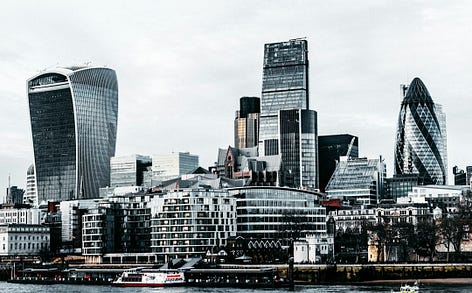After two years of doing their own back-breaking yard work on their acre-and-a-half property in Cold Spring, N.Y., Renata Kero and her husband were ready to finally give in and spend a few thousand dollars to hire a landscaping company.
Then they started re-thinking the purchase, given the uncertainty roiling the economy. Tariffs are being levied and reversed. The federal government is cutting jobs across the country. The stock market is historically volatile. It seemed like any kind of big expenditure was not a good idea.
“It feels like the Wild, Wild West every time you open the news,” says Kero, a 45-year-old freelance journalist with a 5-year-old son. "I feel a very real sense of instability and volatility, like who knows what economic pitfalls await us."
Families and businesses across the U.S. are pulling back on spending amid President Trump’s trade war and abrupt reversals, including Wednesday’s announcement that he would pause the sweeping reciprocal tariffs he announced just days earlier, while ratcheting up levies against China even higher. As an index that measures economic policy uncertainty spikes, consumer confidence fell for the third straight month in March; it’s down more than 30% from November, according to the University of Michigan Survey of Consumers. Consumer spending fell for the first time in two years in January.
Read More: Trump Wants to Spin His Tariff Pause As a Win. It's Not.
Businesses are worrying, too. Delta CEO Ed Bastian said Wednesday that because of “broad economic uncertainty around global trade,” revenue might fall in the current quarter. Bastian predicted a recession might come soon, echoing the words of JP Morgan Chase CEO Jamie Dimon. FedEx lowered its full-year profits and revenue forecasts on March 20, citing “weakness and uncertainty” in the economy. And Warner Bros. Discovery has reportedly advised staff to cancel all “non-business critical” travel due to economic uncertainty.
Small-business optimism declined in March, according to the National Federation of Independent Businesses, which also said its uncertainty index decreased. New policies have “heightened the level of uncertainty among small business owners,” NFIB chief economist Bill Dunkelberg said in a release. “Small business owners have scaled back expectations on sales growth as they better understand how these rearrangements might impact them.”
Uncertainty makes businesses uncomfortable because they don’t know what conditions they will be operating in. Once economic trends and policies are clear, they can adjust. But if those policies keep changing, they can’t respond or plan, so they reduce spending and avoid making major moves until conditions stabilize. Consumers pull back amid uncertainty too, putting off big purchases because they don’t know if they’ll have a job, how mortgage rates will respond to whiplashing policy decisions out of Washington, or what their investment portfolio will look like in a few months.
When consumers and companies pull back on spending, GDP turns negative, which leads to a recession. Uncertainty causes “precautionary reductions in spending because of the lack of clarity and difficulty in terms of forecasting where we're going,” says Laura Jackson Young, an economics professor at Bentley University who has studied the economic effects of uncertainty.
Trump’s moves have created a moment of acute uncertainty, and Young’s research suggests that makes people and businesses even more cautious. Her work found that when uncertainty is already high, people pay even more attention to “uncertainty shocks”—big changes that cloud the horizon even further. “When everything's okay and we're in tranquil times when nothing's really outlandish, people don't pay as much attention to that uncertain component,” she says. “Whereas in an environment where uncertainty is already pretty high, we're very attentive to something that's going to spike uncertainty, and it has a more pronounced effect.”
Read More: World Leaders Scramble On Trump's Tariffs.
Businesses are feeling this profoundly. TJ Semanchin runs Wonderstate Coffee, a small coffee roaster in southwest Wisconsin. Semanchin started the year optimistic about the business—he’d just won a prestigious award from a coffee roasting magazine, and hoped to increase sales at his retail locations as well as chains across the country, including Whole Foods, where he sells his product.
Now he’s rethinking everything. Coffee prices are already near all-time highs because of climate conditions, and then the beans he imports from countries like Nicaragua were going to be slapped with tariffs so high that his costs would amount to about $20,000 more per shipping container, Semanchin says.
Even though Trump has now paused those higher tariffs for 90 days, Semanchin’s worries remain. He’s put off plans to buy a new packaging machine, and is reducing investment for now until the uncertainty clears. “The climate we’re in definitely has me in a more defensive posture,” he says.
When businesses and families move into the same defensive posture, it can push the economy into a recession. And when seemingly each day brings sharp new policy shifts, economists—let alone individuals trying to plan household budgets—can’t be sure what to think.
The tariff reversal “does very little to resolve the uncertainty,” says Philip Luck, director of the Economics Program at the Center for Strategic and International Studies, a Washington think tank. The tariffs might have been “bananas,” he says, but no one can really predict whether they’ll return after 90 days—or even before then.
Because of this uncertainty, Kero and her husband decided that they’d once again do their own yard work this year, no matter how miserable it is. She’s not buying a new phone either, even though it’s on its last legs. Summer travel is now out of the question. “We just need to sock away as much as we can,” she says.



